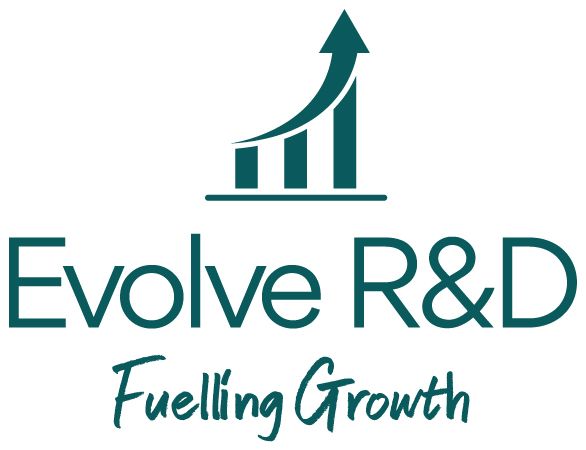Get in touch
Tel: +44 (0) 203 642 5203
Email: enquiries@evolve-rd.com
Evolve R&D Ltd,
85 Great Portland Street,
London,
W1W 7LT
FAQ'S
-
R&D Tax Credits – what are they?
The aim of R&D Tax Credits is to return to companies some of the money they’ve already spent on eligible R&D work.
-
How does this happen?
Money is returned via the corporation tax system – either in the form of a tax credit (a cash payment) or as tax relief (a reduction in tax owed) or a combination of both.
-
But my company made a loss and so didn’t pay any corporation tax – surely, we can’t still claim?
This is a common misconception. So long as you did eligible R&D work, you can indeed still make a claim. The scheme tends to be a little less generous for loss-making companies (as opposed to profit-making) but, depending on the amount of loss involved, not by much.
-
Are we eligible because our accountant has never mentioned the scheme?
As it’s a specialist area, not all accountants are familiar with the scheme and therefore, don’t always know if any of their clients are eligible. It takes knowledge and lots of practical experience to confirm whether or not R&D exists and how much. And that’s where a specialist consulting firm like Evolve comes in.
-
But we don’t do R&D, do we?
Many of our clients once thought that and have since gone on to submit successful claims. So you’d perhaps be surprised about what is and isn’t eligible R&D. And whilst HMRC has clear eligibility rules (in fact, about 180 pages of such rules), the Government’s aim is to widely promote the scheme to encourage as much growth as possible. At the bottom of this page, there’s a link you can use to check your company’s eligibility.
-
You mentioned ‘several’ claims?
Yes, the scheme allows for a first claim to be made retrospectively (which relates to R&D costs incurred during your previous financial year). Plus, so long as you remain eligible, further claims can be made annually. In this way, many of our clients have made multiple claims.
-
So how long does the process take?
As long as we receive the required information pretty quickly, the full process takes 2 to 3 months.
-
Will this take a lot of my time?
This varies depending on the specifics of your claim but, on average, we’ll need about 5 to 6 hours of your time. This is usually split into a couple of sessions which happen during the early part of the claim preparation process.
-
You mentioned ‘R&D costs’ before – will my accountant need to be involved?
Yes, but we need even less of your accountant’s time - typically no more than an hour.
-
In that case, shouldn’t I just ask my accountant to prepare a claim?
HMRC needs to know not just what a claimant’s R&D costs are but, fundamentally, why their claim is eligible. This requires the preparation of a detailed technical report which, if not properly structured and presented, can result in a claim’s rejection. And it is this technical side of the claim that accountants sometimes struggle with. It takes specialist training and experience to identify all eligible R&D work and to justify, to HMRC’s satisfaction, how and why a claim is eligible.
-
But aren’t we too small to bother with?
Regardless its size, any company engaged in technical innovation and that also meets HMRC's eligibility criteria qualifies for R&D Tax
Credits. The key consideration is whether the time invested in the process justifies the financial benefit. Contact us, and we
can help you evaluate this."
-
My company is currently making R&D claims using another consulting firm. How do I know if they’re any good or not?
That old adage about ‘a good service for a fair price’ should help you decide.
The key questions you should ask are:
- How competent does that consulting firm seem?
- What’s the firm’s track record? How long have they been trading and how many successful claims have they prepared
- Also, how many claims have they had challenged by HMRC and how many have they successfully defended?
- Do you have a dedicated consultant or is it a new face every year?
- Is the firm focused? Claim preparation should take no more than 2 to 3 weeks.
- Do they have a claim review process? Any good quality firm will have a review process where somebody other than the person preparing the claim reviews it for compliance before submission.
- Do you get to see and sign-off all claim documents before submission?
- And are the fees fair? Fees vary by claim - but you will know whether what you pay feels fair and reasonable.
- If it doesn’t, why not talk to us? Not only are we competitive but we also offer a generous referral fee.
-
My company is dormant, can I still claim?
If no R&D cost was incurred (because a company was dormant) then there is no basis for a claim. Also, if your company is not a ‘going concern’ at the time a claim is submitted, or within 12 months of submission you expect your company to cease trading, then no claim can be submitted.
-
I’m a start-up and haven’t yet filed my first year’s accounts - can I claim?
A claim can be prepared before the end of your first trading year and the costs involved can be included in the company’s first year
tax calculation. However, the claim can be submitted only when your accounts for that first year are filed.
-
I’ve spent some of my personal money on R&D, but not through the company, can I still claim?
It depends exactly when that money was spent – we suggest you contact us to discuss.
CONTACT US
Tel: +44 (0) 203 642 5203
Email: enquiries@evolve-rd.com
Evolve R&D Ltd,
85 Great Portland Street,
London,
W1W 7LT
USEFUL LINKS
CONTACT US
Tel: +44 (0) 203 642 5203
Email: enquiries@evolve-rd.com
Evolve R&D Ltd,
85 Great Portland Street,
London,
W1W 7LT

